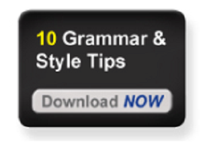 "Well, are you?" he asked.
"Well, are you?" he asked.
The position of question marks is always logical, though sometimes a compromise is necessary to avoid two question marks close together, and sometimes the convention prohibiting its use with the comma ignores logic.
The question mark should never be used with a period, except, of course, when the period is not a true period but merely a point indicating an abbreviation: Is the proper form Ms. or Mrs.? It can be used with points of ellipsis, too--points of ellipsis are not true periods.
The question mark should not be used with the comma. This causes a problem when the question mark ends a quotation and the sentence continues. He asked, "Why me?" which seemed an odd question seems underpunctuated. If the quotation were not a question, a comma would signal both the end of the quotation and the beginning of the second clause, as in He said, "I suppose I deserve it," which seemed an odd remark.
Nevertheless, He asked, "Why me?," which seemed an odd question is wrong, and He asked, "Why me?", which seemed an odd question, with the comma after the closing quotation mark, is doubly wrong. The comma should not be used, even though using it would be quite logical. An exception is sometimes made when the question mark actually has no function in the sentence but is part of a title: His first poem, titled "Why Me?," was dedicated to his mother. This exception has some merit. Other exceptions are made in some scholarly, legal, and other special contexts that are beyond the scope of today's advice.
Combining the question mark with the exclamation point--Why me?! or Why me!?--is usually frowned on as childish.




